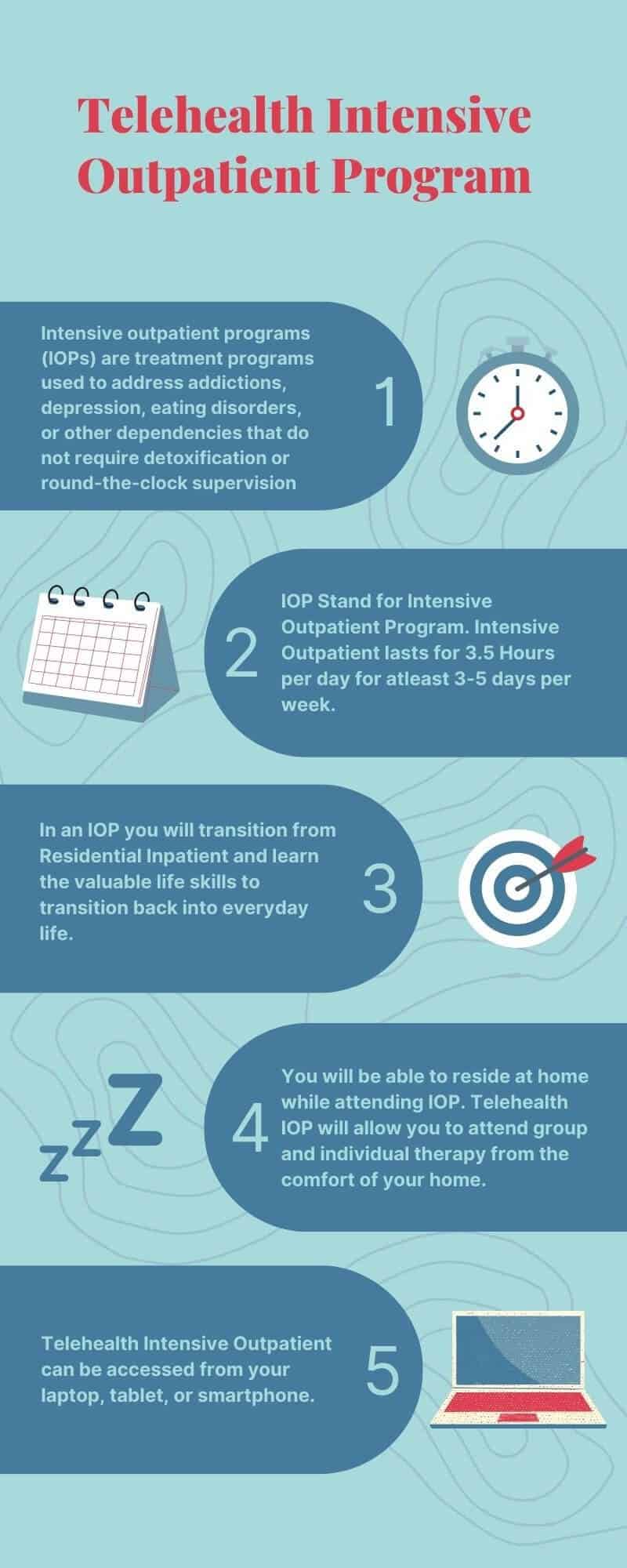The Effect of Holistic Therapies on Mind-Body Recovery in an Intensive Outpatient Program
In the world of extensive outpatient programs, the consolidation of holistic treatments has actually sparked significant passion and discussion among experts in the area of psychological health and wellness and wellness. The exploration of different strategies, such as yoga, reflection, acupuncture, and mindfulness techniques, questions concerning their performance in promoting mind-body recovery for individuals undertaking therapy. As the demand for detailed and integrative care expands, understanding the impact of these holistic interventions within the structured structure of an intensive outpatient program becomes progressively crucial. The possible synergy in between standard restorative modalities and holistic practices in fostering alternative wellness continues to be a subject ripe for expedition and evaluation.
Integrating Holistic Therapies in IOP
Integrating holistic therapies into Extensive Outpatient Programs (IOP) can enhance the overall wellness and therapy results of people seeking mental health and wellness support. Holistic treatments concentrate on dealing with the entire person, attending to not only the signs and symptoms but also the underlying reasons for mental health issues. By integrating practices such as yoga, reflection, art therapy, and acupuncture right into IOP settings, people can experience a much more comprehensive approach to their therapy.

Advantages of Yoga and Reflection
By infusing IOP setups with holistic treatments like yoga and meditation, people can access an array of benefits that contribute to their psychological and psychological well-being - Intensive Outpatient Program (IOP). Additionally, yoga exercise enhances self-awareness and promotes a sense of internal peace, which can be particularly advantageous for people going through extensive outpatient therapy.
Meditation, on the other hand, concentrates on training the mind to accomplish a state of quality and emotional calmness. By incorporating reflection into their regular, people in an IOP can discover to handle competing ideas, improve concentration, and cultivate a more positive expectation on life. Reflection techniques have been shown to reduce signs of PTSD, enhance emotional strength, and promote better sleep patterns, every one of which are important components of the recovery process in extensive outpatient programs. Therefore, integrating yoga and meditation into IOP settings you could check here can dramatically enhance the mental and psychological health of individuals looking for holistic recovery.
Acupuncture for Mind-Body Healing
Acupuncture, a traditional Chinese medicine technique including the insertion of slim needles into certain points on the body, provides a distinct strategy to mind-body healing by targeting energy circulation and advertising all natural wellness. This old strategy is based on the principle of Qi, the body's vital force, flowing along meridians or paths. By promoting certain acupoints, acupuncturists aim to restore the balance of Qi, which is believed to be vital for overall wellness and well-being.

Additionally, acupuncture is increasingly being integrated right into Western medicine methods to match standard treatments for numerous psychological health disorders, offering a holistic technique that takes into consideration the interconnectedness of the mind and body in advertising healing and health.
Mindfulness Techniques in Therapy
Increasing on the world of alternative treatments, mindfulness techniques play a crucial function in therapy by cultivating a much deeper connection between look here the mind and body for total wellness. Mindfulness, rooted in ancient contemplative techniques, entails taking notice of the existing moment non-judgmentally - Intensive Outpatient Program (IOP). In the context of an intensive outpatient program, integrating mindfulness techniques can click over here help people create self-awareness, manage feelings, and minimize anxiety degrees. Via mindfulness meditation, individuals can cultivate an enhanced feeling of understanding of their thoughts, feelings, and physical sensations, advertising a higher understanding of the interconnectedness in between physical and mental wellness.

By urging people to observe their thoughts without accessory or judgment, mindfulness fosters a feeling of acceptance and compassion towards oneself. Ultimately, integrating mindfulness methods into therapy strategies can equip individuals to actively participate in their recovery journey and promote holistic health.
Assessing All Natural Interventions' Efficiency

By combining quantitative information with qualitative comments, scientists can gain a more alternative understanding of the effectiveness of these interventions in promoting mind-body healing within an extensive outpatient program. Such analyses are essential for educating evidence-based practices and optimizing all natural therapy approaches for people looking for extensive wellness.
Conclusion
In verdict, the assimilation of all natural treatments such as yoga, meditation, acupuncture, and mindfulness strategies in an intensive outpatient program can have a significant impact on mind-body healing. These therapies use a more detailed technique to treatment by resolving the physical, psychological, and spiritual facets of a person's health. Reviewing the efficacy of these all natural treatments is vital in understanding their prospective benefits in improving the general recovery procedure for individuals in an outpatient setting.
Comments on “Comprehensive Guide to Picking the Right Intensive Outpatient Program (IOP).”